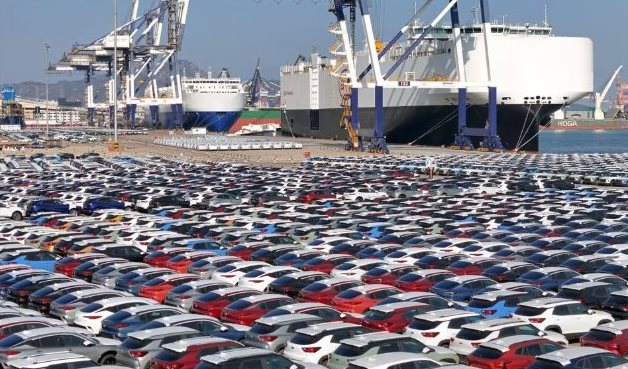
Illustrative image
Sales of luxury electric vehicles in India, those priced at $60,000 and above, have grown three-fold in the past year, prompting automakers to rush in new products to cater to young, discerning buyers in India. Also, the adoption rate for EVs in the luxury segment is pegged at thrice that of the mass market, according to industry executives.
Nearly 2,900 luxury electric vehicles (EVs) were sold in India in the fiscal year ended March 2023, up from about 900 units in the previous year. Senior industry executives said they expect half of all luxury cars sold by the end of this decade to be electric on the back of strong demand and a slew of new products lined up for launch over the next few years. Luxury car sales in India are expected to more than double to about 100,000 units by 2030.
Leading the charge is Mercedes Benz, which plans to launch three electric models this year to double its portfolio. Rival BMW is also gearing up to introduce two new products this year, including the all-electric BMW iX5 M60 xDrive. Audi aims to bring the all-new Audi Q6 e-tron to India at the earliest.
“Luxury car buyers have taken the lead in EV adoption. The EV penetration in the luxury segment is about 6 per cent, which is three times the mass market,” said Santosh Iyer, MD & CEO, Mercedes Benz India. Mercedes Benz has been ramping up its EV ecosystem to increase sales momentum, and the German carmaker saw its EV sales double in Q1.
“We are seeing a strong demand for electric cars in India. Our electric SUV EQE is sold out. The demand-supply gap for the EQB is only increasing. But having said that, EVs are a marathon and not a sprint,” Iyer said.
The German luxury carmaker expects a quarter of its sales to come from EVs in the next four years. Apart from the driving experience, BMW Group India President Vikram Pawah said incentives like lower taxes and government subsidies are making EVs more attractive.
“The market demand for BMW and Mini Cooper electric vehicles is growing as they offer cutting-edge technology, sheer driving pleasure and absolute comfort. Moreover, incentives like lower taxes and subsidies make them even more attractive. From 10 per cent, we see the EV contribution growing to 25 per cent in the medium term.”
It remains to be seen how India’s new EV policy will impact the market, especially with Elon Musk expected to announce plans for a Tesla factory in India during his upcoming visit. Incumbents said this could lead to market expansion for EVs overall. Vietnamese electric carmaker VinFast has also broken ground on its first EV plant in Tamil Nadu.
India levies a GST of 5 per cent on electric vehicles as compared to 28 per cent for fossil fuel-powered cars. BMW plans to introduce more EVs in India in the coming years across various price points to cater to a wider set of customers. BMW India currently sells five electric models – the Mini SE hatchback, iX1 SUV, i4 sedan, iX SUV and the i7 sedan – priced between $62,000 onwards.
Balbir Singh Dhillon, Head of Audi India, said that the Audi e-tron range has been well accepted in India and the company is working on bringing the Audi A6 e-tron at the earliest. Currently, EVs account for 3 per cent of Audi India’s total sales.
According to experts, the Indian EV market is yet to scratch the surface of its potential and though the demand is robust, there is a long way to go. However, as charging infrastructure improves and awareness about the benefits of EV ownership increases, demand for electric vehicles is set to rise.
Based on Reuters, ET





































